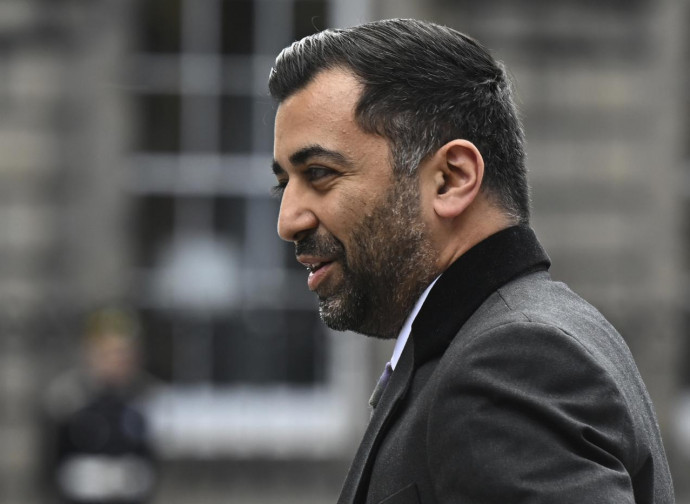Hate crimes, Scotland’s LGBT police state
After pressure from the LGBT lobby, new regulations in Scotland against so-called "hate crimes" will come into force on 1 April. Those who defend male-female gender and marriage between man and woman, face a sentence of up to seven years in prison.

Next 1 April, Scotland's new rules to combat hate crimes come into force. Unfortunately, it won’t be an 'April Fool's joke' for religious believers, church goers and lovers of free speech and thought who, like all Scottish citizens, are in the crosshairs of the new police state, demanded by the LGBT lobby and imposed by the Islamic premier Humza Yousaf.
In five days' time, the new Scottish law, which includes a smokescreen crime of 'incitement to hatred' and gives greater protection to people and certain minority groups characterised by age, disability, religion, sexual orientation and transgender identity, will seriously jeopardise religious freedom, freedom of opinion, thought and even freedom of demonstration.
The supplementary provisions to the 1986 Racial Hatred Crimes Act were passed three years ago by the Scottish National Party, on the initiative of the then Justice Minister and now First Minister Yousaf, in his bid to turn Scotland into a champion of LGBT rights. But what is a 'hate crime' under Scottish law? The definitions are generic and it is purposely left, as in the cases of recent laws in Canada and Hong Kong, to the discretion of police and judges. The Scottish police, in its own internal guidance, states that hate crimes 'are behaviours that are criminal and rooted in prejudice'; these behaviours include 'threats, verbal abuse or insults, including name-calling, assault, robbery and damage to property, such as graffiti on walls' in homes, clubs and circles.
Although the new rules have already been in place for three years, they will come into force only next week. The 'delay' was necessary to allow the police to be carefully prepared for their enforcement. The Minister for Victims and Community Safety, Siobhian Brown, stated that while 'respecting everyone's right to freedom of expression, no one in our society should have to live in fear' and every effort will be made to 'give victims and witnesses the confidence to report hate crime cases'. The police will activate several third-party reporting centres across Scotland by 1 April: centres where it will be possible to go 'clipe' (a Scottish term for spying or being a whistleblower) while remaining anonymous.
The concerns are manifold. The Scottish bishops had already denounced the risks in 2020 and in January this year, after the government's further decision to proceed with the punishment of 'conversion therapies', they reiterated them. Opposition to the new regulations brings together not only Catholics, but also the evangelicals of the Christian Institute, the atheists and Freemasons of the National Secular Society, the very secular Adam Smith Institute and many other organisations, while only the Church of Scotland has so far remained oddly silent.
But, who decides whether a crime is motivated by hate? According to the police interpretation, the victim of the crime or any other person who perceives the hatefulness of the crime, motivated in whole or in part by malice or ill-will towards even one social group, determines the 'hate crime' per se. We therefore move from innocent until proven guilty to the certainty of guilt by the perception of others. Not only bishops and preachers, not only writers like J.K. Rowling, but everyone is at risk in Scotland, anyone who defends marriage between a man and a woman, the Bible or biological sexuality can risk up to seven years in prison. From 1 April it will be an offence to stir up hatred against people who identify as trans, but it will not be an offence against males and females because, under this law, they are not protected categories. Prime Minister Yousaf's desire to impose a police state also goes so far these days as to call for the approval of new regulations on the prohibition of prayer outside abortion clinics and imprisonment for Christian prayers, in a drift towards the now unstoppable abyss.
